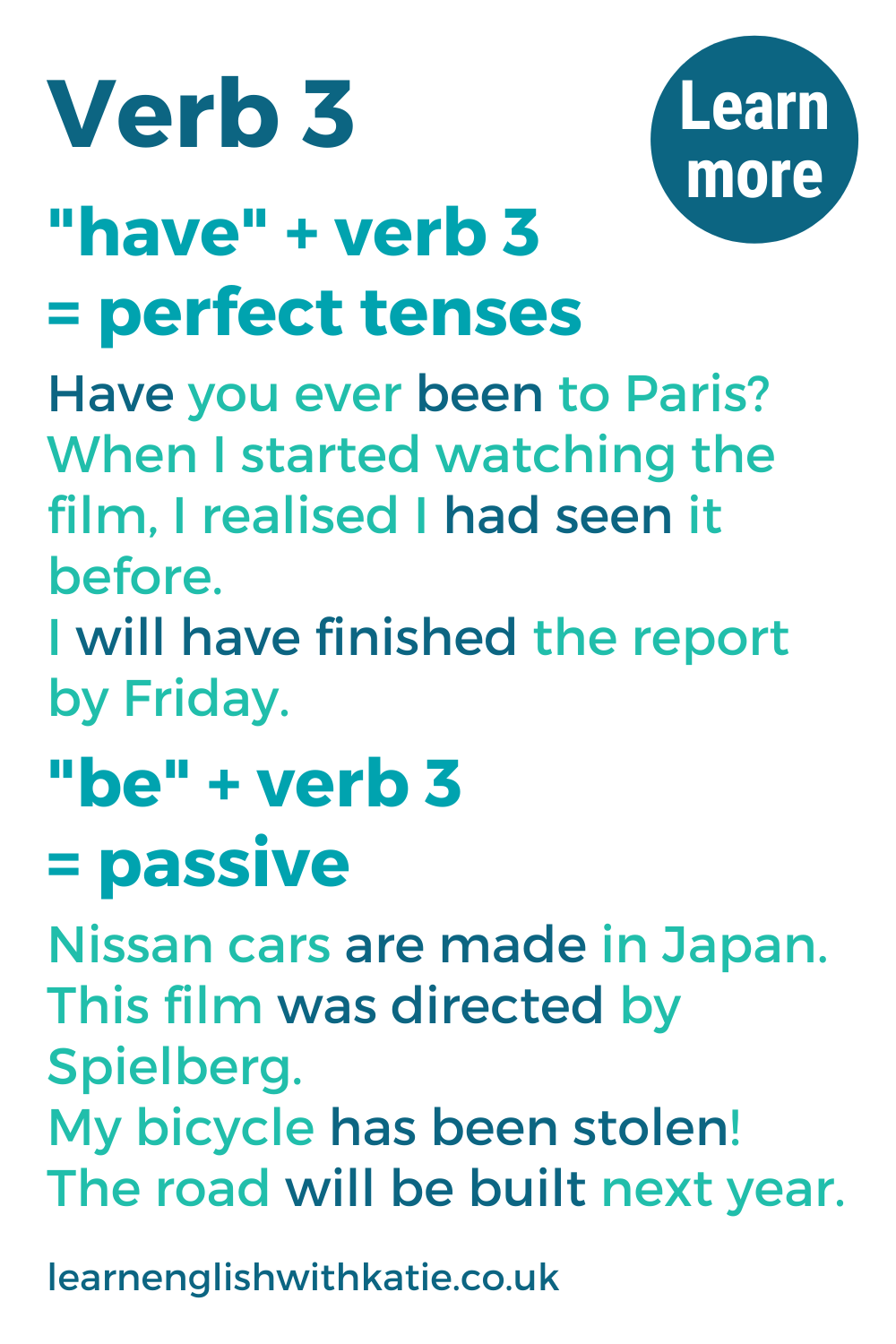|
Verb 3 is usually called the past participle but I think this is a confusing name. Firstly, it isn’t only used for the past but can be used for the present and future too. Secondly, not many people really know what a participle is, not even teachers! So I prefer to call it “verb 3”! It’s important to know that verb 3 is not a tense. Verb 1 looks like the present simple (although it’s actually the infinitive). Verb 2 is the past simple. However verb 3 is not a tense and isn’t used for any particular time. It’s also important to know that verb 3 isn’t used alone (except in a relatively rare situation which I’ll explain at the end). It’s always used with another verb, an auxiliary verb. So you won’t find “written”, for example, without a form of “be” or “have”. “have” + verb 3 This is how you make perfect tenses. For example: Have you ever been to Paris? (present perfect) When I started watching the film, I realised I had seen it before. (past perfect) I will have finished the report by Friday. (future perfect) Click on the blue links for more information and examples. “be” + verb 3 This is the passive. For example: Hyundai cars are made in South Korea. This film was directed by Steven Spielberg. My bicycle has been stolen! The new road will be built next year. How about that rare situation which I told you about earlier? Have a look at this sentence. Watered every week, this plant should flower all through the summer. Here we have verb 3, “watered”, without an auxiliary verb. However, this is actually just a shorter way to write: If it is watered every week, this plant should flower all through the summer. And now we can see a passive structure using the auxiliary “is”. Here’s another example: Most of the people invited to the party brought gifts. This could be written: Most of the people who were invited to the party brought gifts. So it’s a shortened version of the passive again. After studying these examples, I hope you will agree that verb 3 is a better name than past participle and I hope you’ll have a better understanding of how it’s used in English. Further reading You can read about verb 1 here and verb 2 here. If you need help with irregular verbs, click on the button below for a free PDF download:
0 Comments
Your comment will be posted after it is approved.
Leave a Reply. |
About the blogFollow the blog for mini lessons and tips on how to improve your English. Categories
All
Archives
July 2024
|

 RSS Feed
RSS Feed
